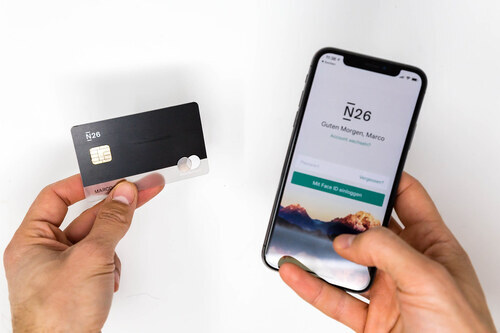Les comptes des clients fermés le 15 avril 2020
18 mois seulement après son arrivée sur le marché britannique, N26, qui a récemment passé la barre des 5 millions de clients, prévoit de s’y retirer et de fermer les comptes de ses utilisateurs dès le 15 avril prochain. La néobanque justifie cette décision par le calendrier et le cadre définis dans l’accord de retrait de l’Union européenne. Le passeport européen lui permettait jusqu’alors d’exercer une activité bancaire dans tous les pays membres de l’UE. Toutefois, le Royaume-Uni n’en faisant plus partie, les acteurs qui souhaitent proposer leurs services sur ce marché devront obtenir une licence auprès de la FCA (Financial conduct authority).
Les clients de la banque mobile devront transférer leurs dépôts vers un autre établissement. Quant aux collaborateurs dédiés aux activités britanniques, la startup assure que la majorité occupera de nouvelles fonctions au sein de l’entreprise à mesure qu’elle continuera de se développer.
Si N26 se retire, c’est peut-être parce que le marché est devenu trop coûteux pour elle. Effectivement, la néobanque dispose d’une licence bancaire délivrée par la Banque centrale européenne depuis 2016, mais pas de licence britannique. Compte tenu du nombre de clients qu’elle enregistre au Royaume-Uni, l’obtention de ce sésame serait particulièrement coûteuse. Sur les réseaux sociaux, de nombreux utilisateurs reprochent à la banque de quitter un marché local ultra concurrentiel. Certains spécialistes soulignent également les performances mitigées de N26 au Royaume-Uni. App Annie la classe par exemple à la 19e place en termes de visiteurs mensuels actifs entre janvier et octobre 2019.
Transformer le secteur bancaire mondial
Malgré cette annonce, N26 maintient sa détermination à transformer le secteur mondial et explique que cela ne remet pas en cause sa trajectoire de développement. L’entreprise allemande rappelle notamment qu’elle a ouvert 250 000 nouveaux comptes aux États-Unis ces derniers mois.
Dans les prochains mois, N26 prévoit de renforcer sa présence aux États-Unis, mais aussi au sein de l’UE. La banque, qui enregistrait 1 million de clients en juin 2018 et en compte désormais 5 millions, semble bien partie pour atteindre ses objectifs. Pour accélérer son développement, N26 envisage d’étoffer son offre en nouant des partenariats et d’investir massivement dans le recrutement des équipes produit et tech. Désormais valorisée à plus de 3,5 milliards de dollars, elle peut compter sur des investisseurs reconnus comme le chinois Tencent, le fonds singapourien GIC ou encore Allianz.
